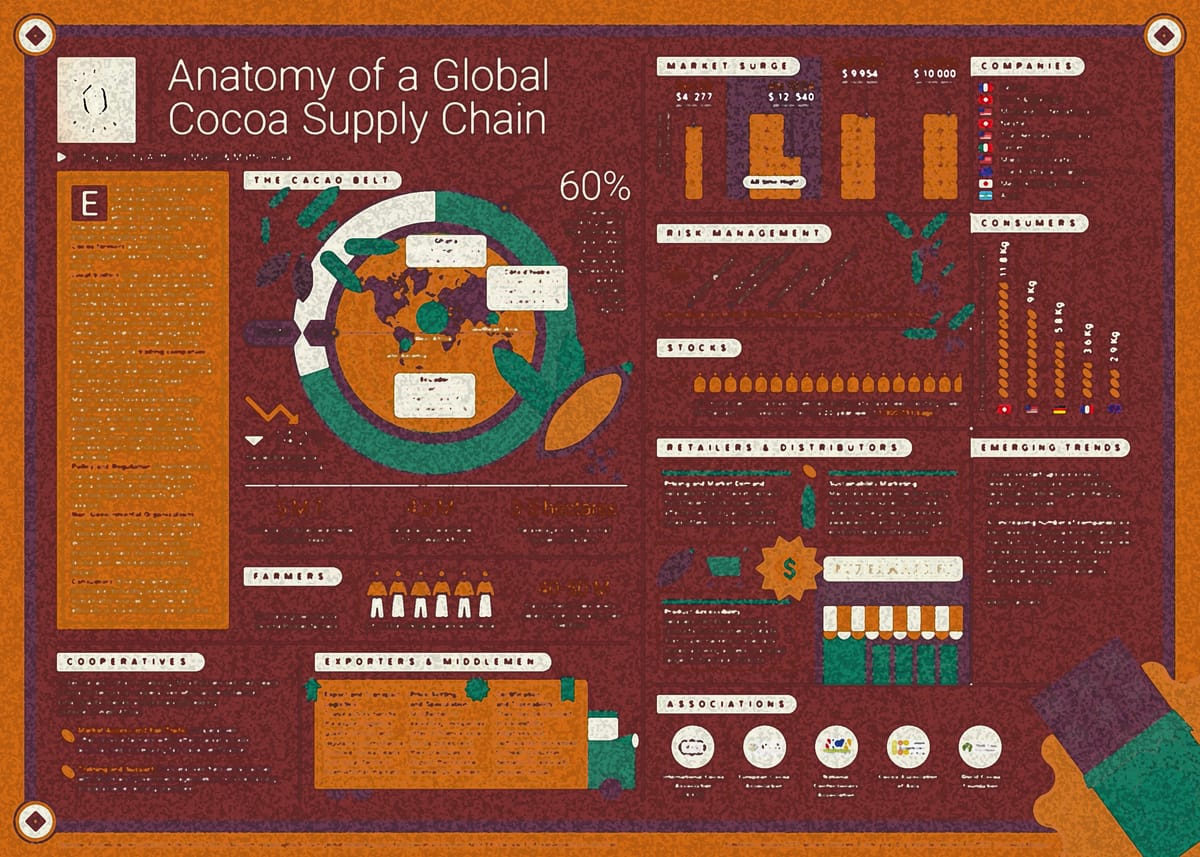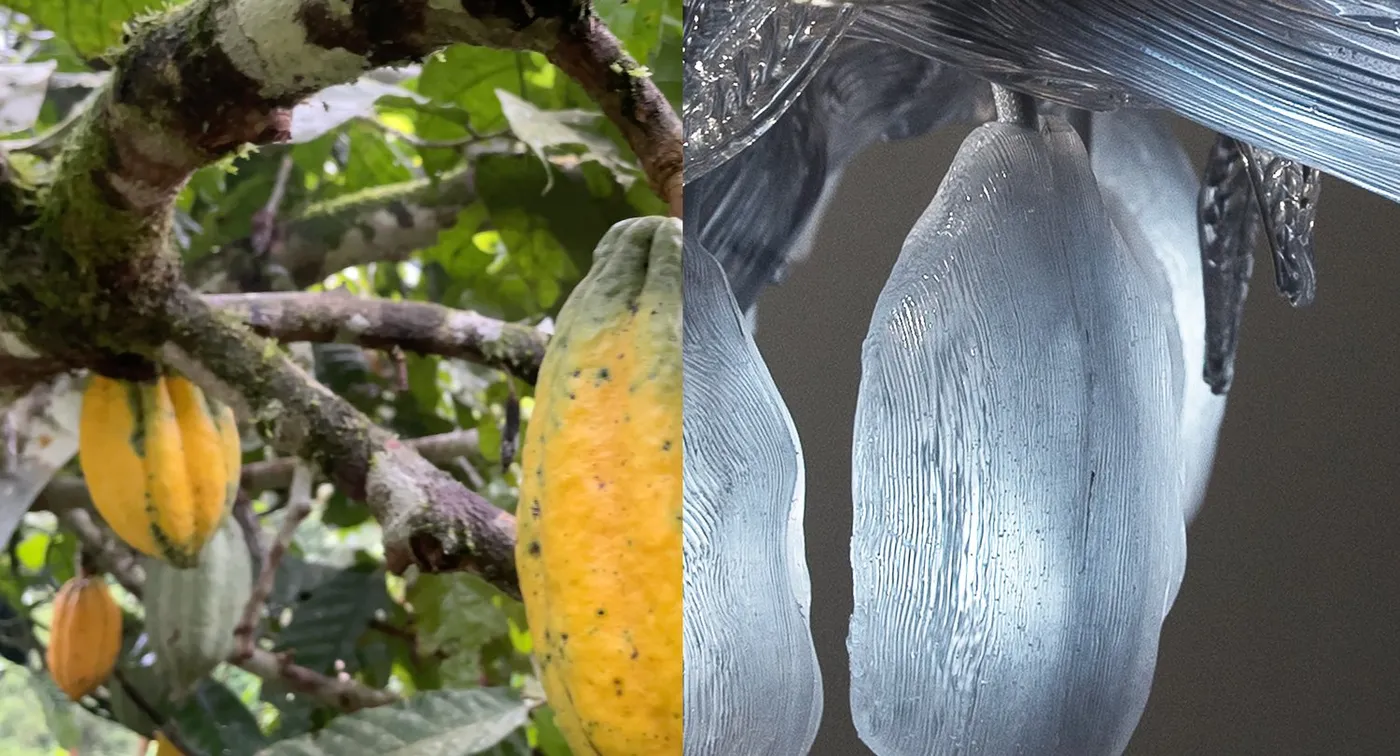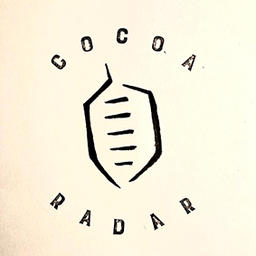By CocoaRadar News Desk
From his studio in Zaandam, near the port of Amsterdam, Thijs Biersteker can smell the aroma of cacao wafting in from arriving shipments. This sensory proximity to one of the world’s favourite ingredients has inspired his latest project 'Origin' —a data-driven sculpture that tracks a real cacao tree’s stress in real-time, revealing the deep environmental tensions underpinning global chocolate supply.
'By creating a digital twin, we did something complicated to show something simple,' Biersteker tells CocoaRadar. 'We want to reconnect people to the origin of their food.'
Over the course of two years, Biersteker and his Woven Studio team, working with the Indonesian Coffee and Cocoa Research Institute (ICCRI) and architect Junya Ishigami, developed a system that links sensors embedded in a cacao tree in Java with a digital twin installation at the Zaishui Art Museum in China.
Orgin : The Art Installation That Makes You Rethink Chocolate Forever - Watch
The result is an elegant yet unsettling artwork: as rainfall hits the soil in Java, viewers see sap flow within the digital sculpture. When temperatures spike or air quality deteriorates, the sculpture’s behaviour shifts, mirroring the tree’s struggle to survive under stress.
'It’s a scary concept,' Biersteker admits. 'What started as a celebration of connection turned into a live warning system for environmental distress.'
A Heartbeat from the Forest
Equipped with sensors measuring sap flow, soil moisture, ambient temperature, and CO₂ levels, the living tree becomes more than a botanical specimen—it’s a broadcasting system for planetary health.
'In just 0.2 seconds, that data travels 4,500 kilometers, showing every shift, every pause, every struggle,' he says.
When the signals first dipped unexpectedly, the studio assumed a technical fault. But the truth was more troubling: the tree was under real, measurable stress. For Biersteker, who once saw chocolate merely as comfort food, the experience turned deeply personal.
'The moment we saw the sap flow for the first time, it was like seeing a heartbeat,' he recalls. “And when that heartbeat faltered, it made us ask: what is happening to our food systems?”
Chocolate in Crisis
Cocoa trees are increasingly vulnerable to heatwaves, pests, and disease, symptoms of accelerating climate change. In Indonesia, Ghana, Côte d’Ivoire and elsewhere, entire harvests are being compromised. Despite the quiet appearance of stability on supermarket shelves, the global cocoa supply is buckling under systemic pressure.
As recent price surges demonstrate, consumers are beginning to feel the effects.
'Our food system is built on fragile connections,' says Biersteker. 'Seeing those connections mapped in real-time helps us see which parts we might still be able to influence.'
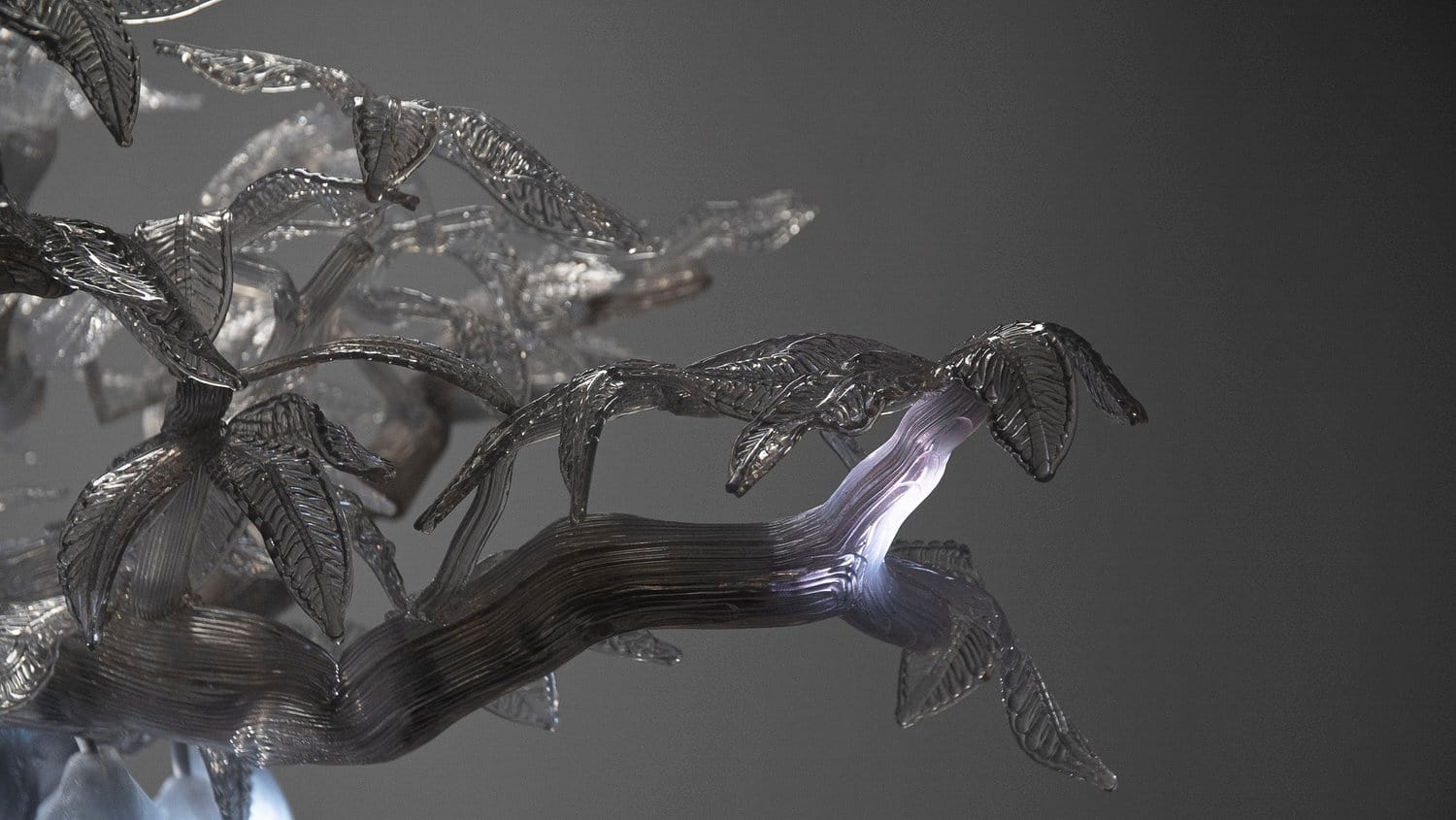
A Living Sculpture with a 25-Year Life Span
Constructed from recycled materials and engineered for longevity, the digital twin is designed to match the average productive life of a cacao tree—around 25 years. Once its lifecycle ends, it will be returned to Woven Studio for recycling.
'I hope it becomes a vessel for transparency,' Biersteker says. 'Cacao can be the canary in the coal mine for food security.'
Beyond Art: The Rise of Digital Twins in Cocoa Sustainability
An overview
While Biersteker’s installation captures hearts and headlines, industry innovators are scaling similar digital twin technologies across cocoa supply chains:
1. Mars × LandScan Agricultural Twins
Mars Wrigley is working with agritech firm LandScan to deploy AI-powered digital twins on cocoa farms. The platform integrates satellite imagery, drones, soil sensors, and predictive analytics to optimise planting, irrigation, and fertilisation.
Impact: Enhanced soil health monitoring, reduced input waste, and improved sustainability metrics.
2. Africa’s Agroforestry Pilots
In Zambia and other African cocoa regions, digital twins are being integrated with agroforestry models to increase ecological resilience. These systems track moisture, climate, and pest data to improve farm productivity.
3. Chocolate Manufacturing Efficiency
In the food processing sector, digital twins are starting to reduce energy and material waste in cocoa grinding and chocolate production. While still in early stages, case studies in Sustainable Food Systems suggest significant long-term benefits.

The Promise and the Pitfalls
Benefits:
- Precise use of water and fertiliser
- Early detection of disease and crop stress
- Improved traceability and transparency
- Stronger compliance with deforestation laws
Challenges:
- Technical complexity and cost
- Limited public access to success metrics
- Scaling from pilot programs to full supply-chain integration
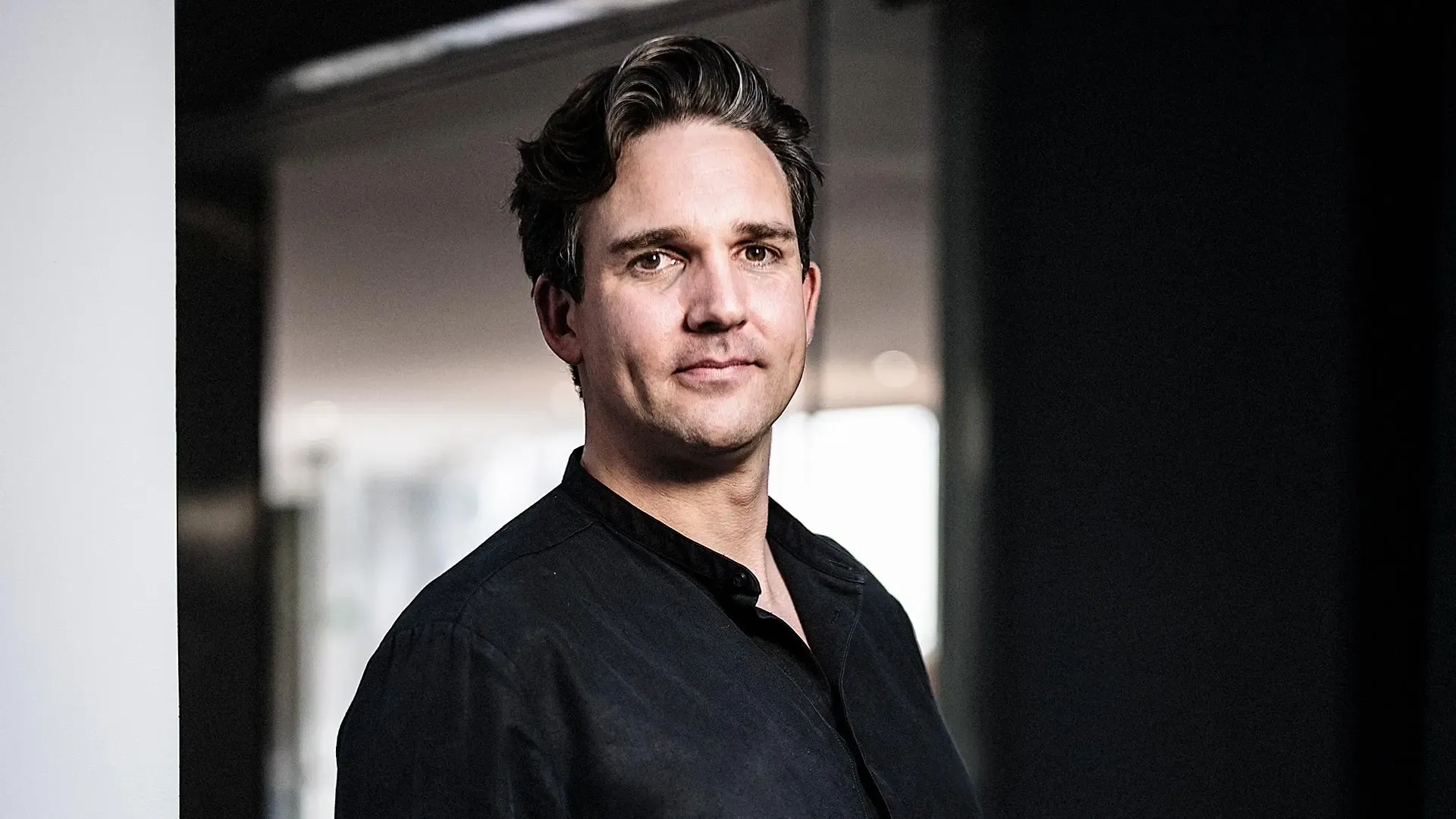
A New Conversation for Cocoa
'Origin' isn’t just a sculpture—it’s a conversation starter. By linking art, science, and sustainability, Biersteker hopes to inspire new thinking among consumers, companies, and policymakers alike.
'Art can speak to the imagination in a way that facts can’t,' he says. 'We want to get this work from museums to COP conferences and boardrooms—anywhere the future of food is being decided.'
For now, the sculpture lives in China. But its message is global. Biersteker is open to staging the work in other museums, cities, and sustainability forums.
- To host or collaborate, contact: hello@thijsbiersteker.com
Editor’s Note: This article is part of CocoaRadar’s continuing coverage of innovations in sustainability, traceability, and climate resilience across the cocoa value chain.
If you’d like to feature this story in your newsletter, syndicate it, or pitch a follow-up interview with the artist, email us at tony@cocoaradar.com.
